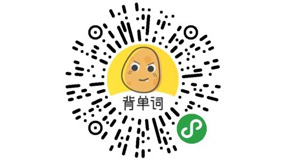这些相关的词汇和短语,以及一些观点一定要好好学习了。
雅思口语part 1 的health,fruit and vegetable, food and diet等等相关话题,part 2 a healthy lifestyle等话题,part 3的健康相关深层次的抽象类问题,都可以利用这篇文章中的观点!
In the West now, in spite of the fact that obesity rates(肥胖率的正确表达是酱紫的) are still increasing, there is at least knowledge of what is good and bad for us(这样的表达比they know高大上几百倍好么) , and a concerted effort(齐心协力口语中能用到这个表达会很牛) underway in many areas to make our food healthier. Even some of the unhealthiest foods, like sweets and fizzy drinks(碳酸饮料,往死里记), are either now available in low/no sugar versions, and increasingly have natural colours and flavours(天然色素和香料) rather than artificial ones(人工色素和香料).
In China, however, there seems to be no such recognition(没有意识到这个问题). I will give you an example. They seem to plaster the word ‘healthy’ on anything; it is merely a pretty decoration to them it seems. Once, I was in a ‘health drinks’ shop-they sold nothing but ‘healthy’ drinks, made from all sorts, fruits, vegetables and more. Yet when I asked the lady at the counter if there was anything without added sugar, and together we started looking, it quickly became apparent that there wasn’t. Indeed, in almost every case, sugar was the second ingredient on the list, after water. How can those drinks be described as ‘healthy’?
I think there are probably many reasons for this, but from my personal observations Chinese people value flavour over ( value…over…视…高过… 这么地道的表达再不用就落伍了) anything else, including nutritional value. They will often snack on (如果你的英语水平还停留在snack只做名词的level,那这个短语你是没法理解的,这里的意思是吃什么样的零食) many types of junk without really questioning what’s in it. If they are hungry, they will sometimes just eat chocolate. Chocolate! The worst thing for when you’re hungry.
忧学生
One of the things that worries me the most (人老外表示真的是干着急)is the availability of these things on school campuses. Chinese schools are of a scale rarely seen in the UK, and many high school students live in dormitories on campus (as their school days are so long-8am-6pm, then self-study in the evenings until 9 or 10pm!). What does the school provide for them to eat?
Greasy(油腻的) canteen(食堂)food and endless prepacked snacks. I have been in school tuck shops(校内小卖部,比单独说“shop”地道多了) here, and there’s not a piece of fruit in sight.
Just pile upon pile of processed meats (including of course duck’s tongue, chicken’s feet, luncheon meat style sausages in plastic wraps and more), crisps, chocolates, sweets, fizzy drinks… ALL laden with sugar, ALL processed to the point that they’re barely edible and they are ALL that is available. Many students seem to live on instant noodles, and think nothing of it. (Many of my own students have confessed this to me-not a piece of fruit, no fresh veg, just noodles and snacks...)
(好吧,还是批判政府了。。。)
I read recently that diabetes (once almost non-existent, at about 1% of the population in the 1980’s) is now past the rate in the US (they’re just over 8%), here it’s over 11%! Doesn’t this tell the authorities something? They must be aware.
And yet, like with the horrendous (令人吃惊的)smoking problem they have, it seems that they’re turning a blind eye(视而不见). There’s no sign of it improving anywhere.
批奸商
Then, even with all of this put aside(抛开这一切不说), Chinese food isn’t always prepared in a healthy way. Many people use too much oil and salt, and in restaurants it’s even worse, with heaps of(大量) sugar and MSG(味精)added to most dishes too. Especially in the fast-food restaurants (run much like school canteens) the food you get isfloating in oil(食物泡在油里,够夸张).
There is the well-known problem of ‘sewer oil’(地沟油) too – cooking oil that is being, shall we say, recycled – after having been used previously, emptied into the drains and then syphoned(用虹吸管吸上来)back out by some very enterprising individuals to be sold back to the restaurants.
批迷信
Another issue is Chinese superstition(迷信). Many food items that are natural and healthy are shunned (回避)for reasons related to Chinese traditional medicinal thought(传统中医理念).
They have ideas about ‘上火’ or ‘internal heat’, and ‘coolness’ and ‘wetness’ that all have some effect (psychological in my mind!) on what they eat. Many Cantonese, for example, will avoid spicy food because it is something that will ‘raise their internal heat’, but other things fall into this category like lychees(荔枝), pineapple(菠萝) and more. Other items you should eat for other reasons, and it is a complex list of relationships between ‘conditions’ and the various vegetables, fruits, meats etc that exacerbate(使恶化)/relieve them.
Many of these items are healthy, natural things. One of my friend’s mother even refused multivitamins(复合维生素) because she claimed they were ‘shanghuo’ (raised her ‘internal heat’).Meats like lamb are only eaten in winter for similar reasons. Also, in the Chinese person’s mind, if you have a problem with some area of your body, you should eat that part of an animal. This too can lead to overconsumption(过度食用) of certain animal parts, and is hardly a scientific approach to illness. There’s often no reasoning with them about this.
All in all, I have serious concerns about the future health of the Chinese people(老外表示:我真的很担心未来中国人的健康!). They eat rubbish, in large quantities, and don’t question it.
People eat simply for taste and pleasure, without a second thought for what is good for them-unless something ‘goes wrong’ (Chinese medicine style).













